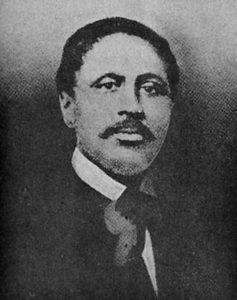
Macon B. Allen
*Macon Allen was born on this date in 1816. He was a Black teacher, lawyer, and judge.
Macon Bolling Allen was born in Indiana and grew up a free man. He learned to read and write independently and eventually landed his first job as a schoolteacher, where he further improved his reading and writing skills. Allen moved to Portland, Maine, in the early 1840s to study law, working as a law clerk for General Samuel Fessenden, a local abolitionist and attorney.
After passing the Maine bar exam, he was granted his license to practice law in Maine on July 3, 1844. Allen was among the first Blacks licensed to practice law in the United States. He experienced difficulty finding legal work in Maine because whites were unwilling to hire a Black attorney, and few Blacks lived there. In 1845, he moved to Boston, Massachusetts, walking fifty miles to the bar exam test site because he could not afford transportation, and passed the exam. Allen and Robert Morris, together, opened the first Black law office in the United States.
Racial prejudice in Boston again kept Allen from making a living as a lawyer, so he sought to become a judge to supplement his income. After passing a rigorous qualifying exam for Justice of the Peace for Middlesex County, Massachusetts, in 1848, Allen became the first Black in the United States to hold a judicial position despite not being a U.S. citizen under the Constitution. He moved to Charleston, South Carolina, after the American Civil War to practice law and was elected to be a judge in the probate court of Charleston in 1874.
Following the Reconstruction Era, he moved to Washington, D.C., where he worked as an attorney for the Land and Improvement Association. He continued to practice law until his death at age 78; Macon Allen died on June 11, 1894.